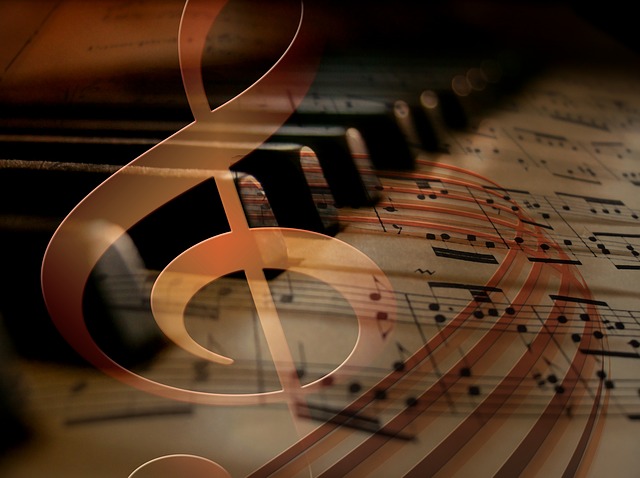 One of the most universal traits we share is the love or appreciation of music. Even animals seem to respond positively to music. Certainly, there is a wide variety of tastes in music, ranging from symphonic to hard rock and beyond.
One of the most universal traits we share is the love or appreciation of music. Even animals seem to respond positively to music. Certainly, there is a wide variety of tastes in music, ranging from symphonic to hard rock and beyond.
So, what has that to do with faith?
As we continue to explore the evidence that our existence is the result of deliberate creation by God – and not the result of a random combination of events, we come face-to-face with the dilemma of why music is so appealing. In its simplest terms, music is nothing more than a series of notes or tones arranged in a specific order and duration. Yet, that simple formula results in giving us pleasure.
If we take a moment to analyze our sense of hearing, we would recognize that we are inundated with sounds continuously, but filter out many of those signals as insignificant. We ignore the buzz of nearby traffic, the ticking of a clock or the quiet hum of our refrigerator. Let a favorite tune pop up on the car radio, however, and we perk up and listen. Perhaps we even sing along.
We all have our favorite tunes or tunes that have an emotional impact on us. Love lost, love gained, redemption, patriotism, nostalgia – the list of musical emotional triggers is extensive. Add to the musical effect the lyrics – poetry. The songs that have the most impact on us usually have lyrics that also have special meaning in our life experience.
Once again, we raise the question – accident of nature or divine plan?
There is no question that the creation of music is an artistic skill. We reward the creators in direct proportion to the number of us that appreciate their efforts. Create a hit song and the public will willingly pay for the experience of hearing it over and over. Yet, even a less popular performance still demonstrates a grasp of the basics of combining musical notes in a pleasing combination.
So, how does God fit into this picture?
Once we examine the appreciation of music as an emotional response, we need to ask, “How can an emotional response be the result of a random collection of chemicals?” Even if we consider the theories of evolution, it seems improbable that animal life, humans included, would evolve an appreciation of music eons before the creation of any type of musical instrument.
If an appreciation of music is a learned response, how do we explain a baby’s soothed reaction to a mother’s lullaby?
While we can understand how the sense of hearing could play an important role in survival – being aware of the sound of an approaching predator is vastly different from the emotional response to hearing your favorite love song. One is analytical – the other is clearly emotional.
Yes, science has identified certain chemical triggers that evoke an emotional reaction in the human brain, but have yet to clearly identify the nature of emotion itself. What combination of chemicals, molecules and brain cells defines love? What combination defines sorrow, pride or jealousy?
Regardless of what chemical reaction occurs, the ability of music to trigger emotion is undeniable.
We are left with two important questions.
Which is easier to believe – that God engineered an appreciation of music into the human form? – or that eons of evolution and mutation have built a love of music from the dust of our origins?
The second question – if some earthly music can bring tears of joy to our eyes, what would we experience hearing a heavenly choir?
